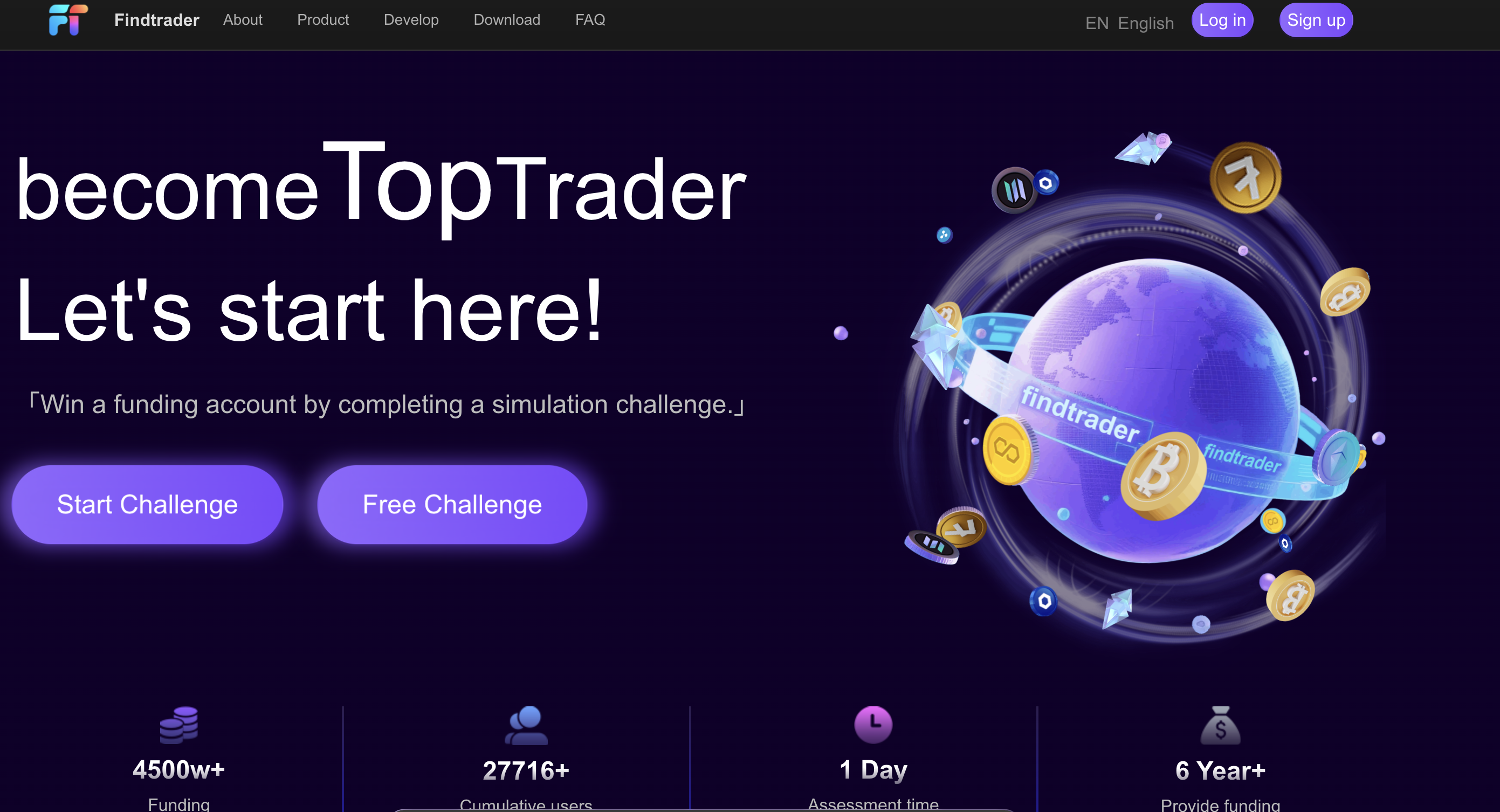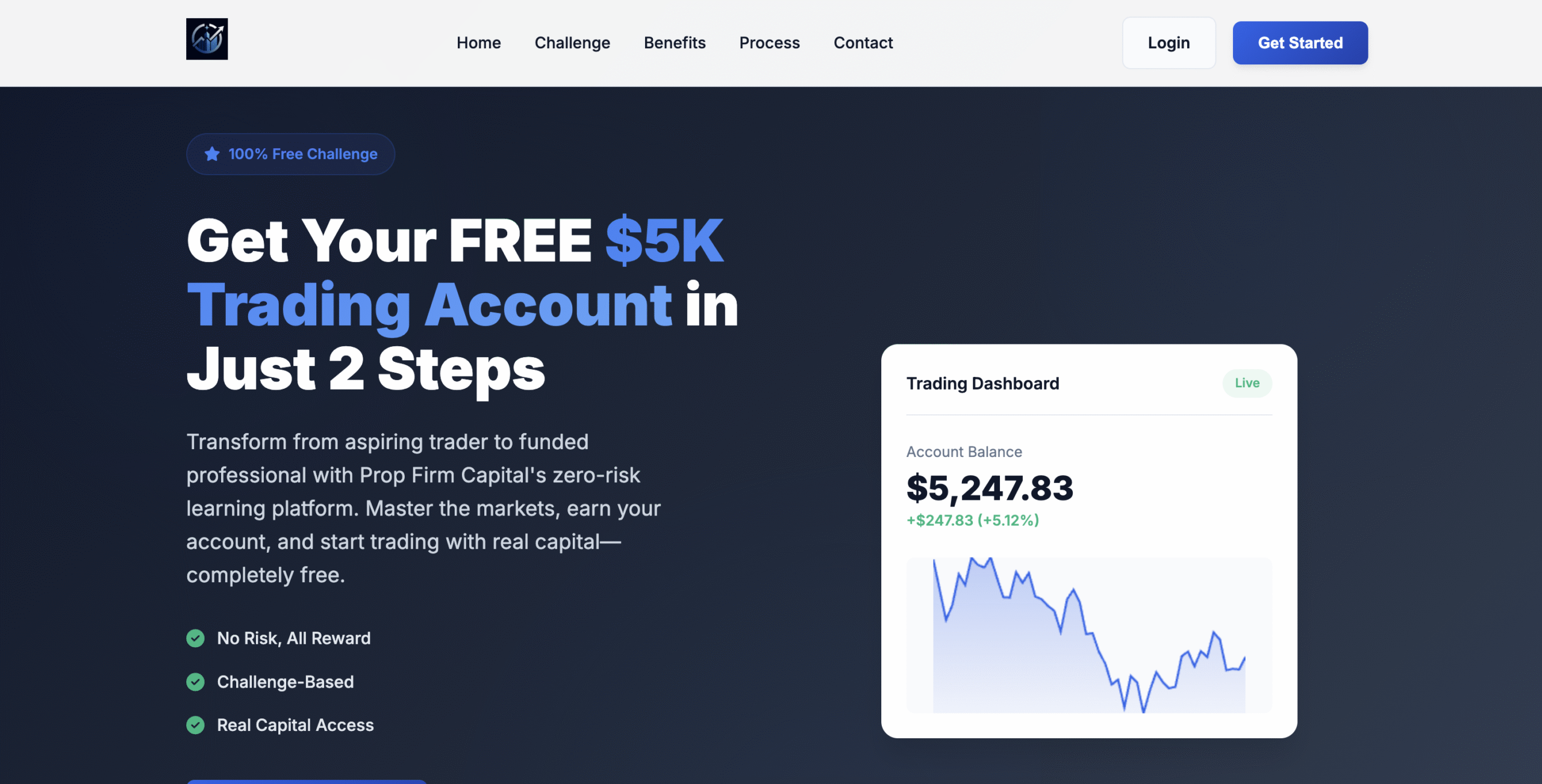Introduction
In recent months, VPropTrader.com has attracted increasing scrutiny from traders who claim to have been misled, blocked from payouts, or simply ignored once they began making profits. While it presents itself as a proprietary (“prop”) trading firm — offering challenge accounts, funded accounts, and the promise of significant upside — a growing body of evidence suggests that many users feel they’ve been duped.
In this detailed blog post, we’ll examine the key red flags around VPropTrader. We’ll analyze user reviews, regulatory risk, reported withdrawal issues, and broader prop firm business-model concerns. By the end, you should have a clearer understanding of whether VPropTrader is a legitimate opportunity — or a potential scam to avoid.
What Is VPropTrader.com Supposedly Offering?
At first glance, VPropTrader markets itself like many other prop trading firms:
-
Challenge / Evaluation phase: Traders pay a fee (or “buy in”) to trade a simulated or real evaluation account, aiming for specific profit targets without violating risk rules (like drawdowns or daily losses).
-
Funded account: If they pass the evaluation, they’re “contracted” and given a real funded account, where they can trade with the firm’s capital.
-
Profit share: Traders keep a portion of profits generated on the funded account.
-
Withdrawals: Once a trader reaches a certain profit threshold, they claim these can be requested and paid out.
All of this is standard on many legitimate prop firms — but the devil is in the detail. And for VPropTrader, many traders claim these details don’t add up.
Key Red Flags & Complaint Themes
1. Withdrawal Issues & “Under Trade Review”
One of the most common complaints is that withdrawal requests are delayed, repeatedly reviewed, or outright denied. On Trustpilot, multiple users say their payout has been stuck “under trade review.” Trustpilot+2Trustpilot+2
For example:
“I requested my payout more than 6 days ago … it’s still stuck on ‘Under Trade Review’ … I have raised multiple tickets and still received no human response.” Trustpilot
Another trader reports completing the funded stage, yet “your bot says my withdrawable profit is 0.” Trustpilot
In one particularly concerning case, a user says:
“I passed phase one … they changed my daily loss limit … after, they didn’t tell me this before I passed … Trash.” Trustpilot
This suggests not just delay — but potentially shifting the goalposts, meaning even after “success,” traders are penalised or blocked.
2. Regulatory & Licensing Doubts
Regulation is a critical factor in evaluating the safety of a trading firm. According to publicly available reviews, VPropTrader lacks proper licensing:
-
ReviewsAdvice’s analysis found no credible regulatory registration (FCA, ASIC, SEC, etc.) for VPropTrader. Reviews Advice | Forex News & Updates
-
ScamDoc rates the domain with a poor trust score, citing its very recent creation (February 2025) and limited transparency on ownership. Scamdoc
-
On Scamadviser, a subdomain (
wt7.vproptrader.com) also has a very low trust score. ScamAdviser
Lack of regulation doesn’t automatically mean a firm is a scam, but it significantly increases risk — especially when combined with other red flags.
3. Unresponsive / Poor Customer Support
Several users highlight difficulties in getting meaningful responses from VPropTrader’s customer service:
-
According to Trustpilot, some say support “looks AI‑generated” or only sends boilerplate replies, particularly when the case is about payouts. Trustpilot
-
In at least one case, a user reports passing evaluation but never receiving the next account credentials. Trustpilot+1
-
Another user tried repeatedly to withdraw, and their tickets “went unanswered,” leading them to conclude the firm is “a blatant scam.” Trustpilot
Poor support can sometimes be explained by scaling issues, but when paired with payout problems, it looks more like a systemic failure.
4. Opaque or Changing Trading Rules
Several traders allege that the risk rules during evaluation or funded stages are not stable or clearly communicated:
-
One trader said their daily loss limit was changed after they passed a challenge, without prior warning. Trustpilot
-
Another reported being disqualified for “latency arbitrage” (a form of fast-execution strategy), despite claiming all their trades were placed manually. Trustpilot
-
There are further claims that, in funded accounts, rules differ, or profit conditions are tougher than advertised.
If true, these practices can be extremely unfair. Prop firms should have consistent, transparent rules; shifting them mid-process is a huge red flag.
5. Short Domain History & Credibility Concerns
As noted by ScamDoc, VPropTrader’s domain is very new — registered February 2025. Scamdoc
A young domain isn’t a definitive sign of fraud, but when coupled with ownership anonymity (no clear WHOIS data) and a poor trust score, it undermines credibility.
In addition, on Reddit and other trader-focused communities, there’s growing wariness around prop firm models, especially those that make big promises but fail to deliver on payouts. Reddit+2Reddit+2
Some users accuse prop firms more broadly of being structured to profit off challenge fees rather than support traders long‑term. Reddit
These concerns are relevant to VPropTrader specifically — users argue that some prop firms are not created to truly scale good traders, but rather to collect fees from aspirants.
Counterpoints & Possible Defenses
To ensure a balanced perspective, it’s worth considering what VPropTrader or its defenders might say, and where there could be misunderstandings.
-
Some Payouts Do Happen
-
Not every review is negative. A small number of users report successful payouts. Trustpilot
-
The company, in its responses, suggests that waiting times (“under trade review”) are due to compliance checks or high volume, rather than foul play. Trustpilot
-
They claim a 14‑day payout cycle for paid accounts in some responses. Trustpilot+1
-
-
Free Challenge Constraints
-
VPropTrader apparently limits withdrawals on free accounts. According to a Trustpilot reply: “free accounts have fixed withdrawal rules, including a $20 maximum.” Trustpilot
-
From their perspective, free evaluation accounts are promotional tools rather than genuine funding vehicles.
-
-
Risk Management Justification
-
Some of their terms (e.g., daily loss limits, latency arbitrage) might be defended as risk control. Proprietary firms need to manage risk to protect their own capital.
-
They could argue that rule enforcement (like disqualification for latency arbitrage) is necessary to prevent abuse of their accounts.
-
-
No Regulation ≠ Guaranteed Scam
-
Many prop firms, especially newer ones, operate without direct financial‑services regulation, because their model is different from retail brokers.
-
However, lack of regulation should always prompt caution — it’s not a license to trust blindly, but neither is it an automatic proof of fraud.
-
Why Many Traders Call It a Scam: Root Causes & Business Model Issues
Putting together user complaints, domain risk, and business model analysis, here’s a breakdown of why many believe VPropTrader functions more like a predatory business than a supportive funded trading firm.
-
Revenue From Challenge Fees
The core of the prop firm business model: traders pay to “buy into” an evaluation (challenge). If too many pass, the firm may end up paying out, but if lots fail — they collect fees without providing funded accounts. Critics argue that some prop firms optimize their structure to encourage failure. -
Arbitrary Risk Rule Enforcement
If risk rules are loosely defined or change mid-evaluation, then firms can deny funding or cut traders off even when they appear to have “passed.” This creates a situation where traders can feel cheated, especially if they’ve worked hard to meet targets. -
Payout Friction
Withholding payouts (or stretching reviews) is a powerful tool. Even if some traders eventually get paid, making withdrawals hard or slow discourages many and may inject enough fear or frustration to prevent repeat participation or complaints. -
Lack of Transparency
When companies do not disclose key information clearly — about pricing, rules, or corporate structure — traders are left in the dark. That opacity is a breeding ground for distrust. -
Low Accountability
Without strong regulation, there’s minimal external oversight. Disgruntled traders rely on review platforms (like Trustpilot) or community forums (like Reddit) to share their stories, but that’s not the same as having regulatory recourse.
Real Voices: What Traders Are Saying
Here are some direct comments (paraphrased and quoted) from actual VPropTrader users or trading-community members:
-
“I was completely ripped off … no payout, no meaningful support.” Trustpilot
-
“They got my account frozen, and my money withheld till I got in touch with ‘Safe‑Claim’ …” Trustpilot
-
“My account was closed because Floating PnL has exceeded -1% … I only lost $1.41 … out of $509.” Trustpilot
-
“The domain is brand new, owner hidden … trust score is very low.” Scamdoc
How to Protect Yourself (If You’re Considering Prop Firms)
Given the risk profile that emerges, here are recommendations for anyone exploring prop trading — especially with firms like VPropTrader:
-
Do Thorough Due Diligence
-
Check domain age and ownership (use WHOIS).
-
Search for regulatory status (if applicable).
-
Look for independent reviews on Trustpilot and trader forums, not just marketing material.
-
-
Read the Fine Print
-
Understand evaluation rules: profit targets, drawdown rules, daily loss limits, etc.
-
Confirm whether rules differ between the challenge and funded accounts.
-
Ask about “account freezes,” latency arbitrage policies, and payout conditions.
-
-
Start Small
-
If you decide to take a challenge, consider starting with a smaller account or cheaper tier until you’ve validated the payout process.
-
Avoid overinvesting in a challenge fee before you have confidence in the firm.
-
-
Document Everything
-
Keep track of your trades, P&L, and any communications with support.
-
Screenshot and save your withdrawal requests and ticket IDs.
-
-
Test Withdrawals
-
Even after “funded,” try requesting a small payout first.
-
If possible, ask other traders (on Reddit, Discord, Telegram) about their real payout experiences.
-
-
Use Payment Methods with Dispute Options
-
Where possible, pay via credit card or payment method that offers chargeback/dispute.
-
Avoid methods that are irreversible without recourse.
-
-
Engage the Community
-
Join online prop trading communities and ask for feedback about specific firms.
-
People who’ve passed challenges and withdrawn can offer valuable insight.
-
Conclusion: Is VPropTrader a Scam?
Based on available evidence, VPropTrader.com raises serious red flags. The convergence of:
-
widespread user complaints about withdrawals,
-
an apparently unregulated business model,
-
poor customer support,
-
opaque or shifting evaluation and risk rules, and
-
a very new domain
… all point toward a high-risk proposition for traders.
While not every user claims to have been cheated, and some do report payouts, the overwhelming volume of negative experiences suggests that many are left dissatisfied, frustrated, or financially blocked.
If you’re considering VPropTrader (or similar prop firms), you must tread very carefully. This is not a red‑flag to ignore — it’s a call for rigorous vetting, prudent risk, and strong skepticism.
Final Word: Unless you are very comfortable with risk, have done very deep due diligence, and are prepared for the possibility that withdrawal may be contentious, it’s wise to stay away from VPropTrader and look at more established, transparent prop firms instead.
If you like, I can compare VPropTrader with legitimate prop firms (e.g. FTMO, The Funded Trader) — showing pros, cons, and how to choose the right one safely. Do you want me to do that?



